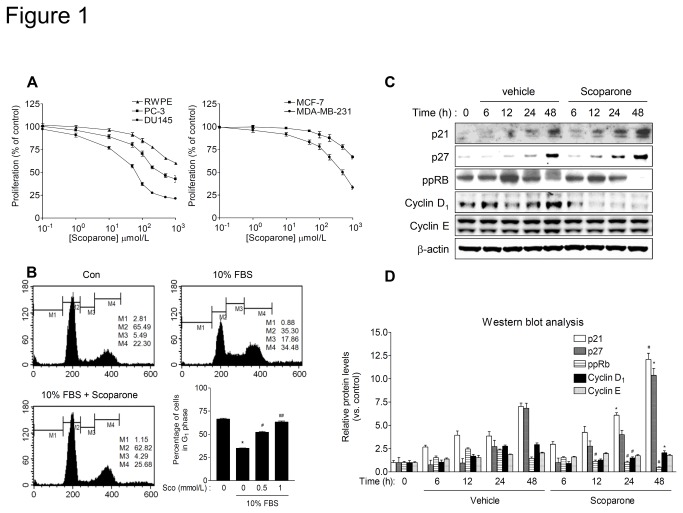Figure 1. Scoparone suppresses proliferation of DU145 prostate cancer cells by inducing G1-phase cell-cycle arrest.
A and B. Scoparone inhibits proliferation of human cancer cell lines. Prostate cancer cells (DU145 and PC-3), RWPE-1 (an immortalized human prostate epithelial cell line), and breast cancer cells (MCF-7 and MDA-MB-231) were serum starved for 24 h. Cells were then incubated in growth medium supplemented with 10% FBS in the presence of vehicle (0.1% DMSO) or the indicated concentrations of scoparone for 72 h, and cell proliferation was determined by WST-8 assay. Data are expressed as percentages of the vehicle control (defined as 100%) and represent the means ± S.E.M. of three independent experiments, each performed in triplicate. B. Scoparone induces cell-cycle arrest at G1 phase in DU145 cells. Serum-starved DU145 cells were stimulated with 10% FBS in the presence of vehicle or scoparone (0.5 and 1 mmol/L) for 28 h, and then subjected to flow cytometric analysis of the cell cycle. Bar graph indicates the percentage of cells in G1 phase. The data are the means ± S.E.M. of three independent experiments, each performed in duplicate. * P < 0.001 vs. vehicle control; # P < 0.005, ## P < 0.001 vs. serum stimulation. C. Representative Western blot analysis of cell cycle-related proteins. DU145 cells were treated with scoparone (0.5 mmol/L) for the indicated times, and then harvested for Western blot analysis. D. Quantification of relative protein levels. Signal intensities were quantified by densitometric analysis and normalized to that of the corresponding β-actin signal. Expression level of each protein was expressed as a ratio relative to the level in the control at time 0 h, which was defined as 1. The data represent the means ± S.E.M of three independent experiments. * P < 0.05, # P < 0.005 vs. vehicle control at each time point.

